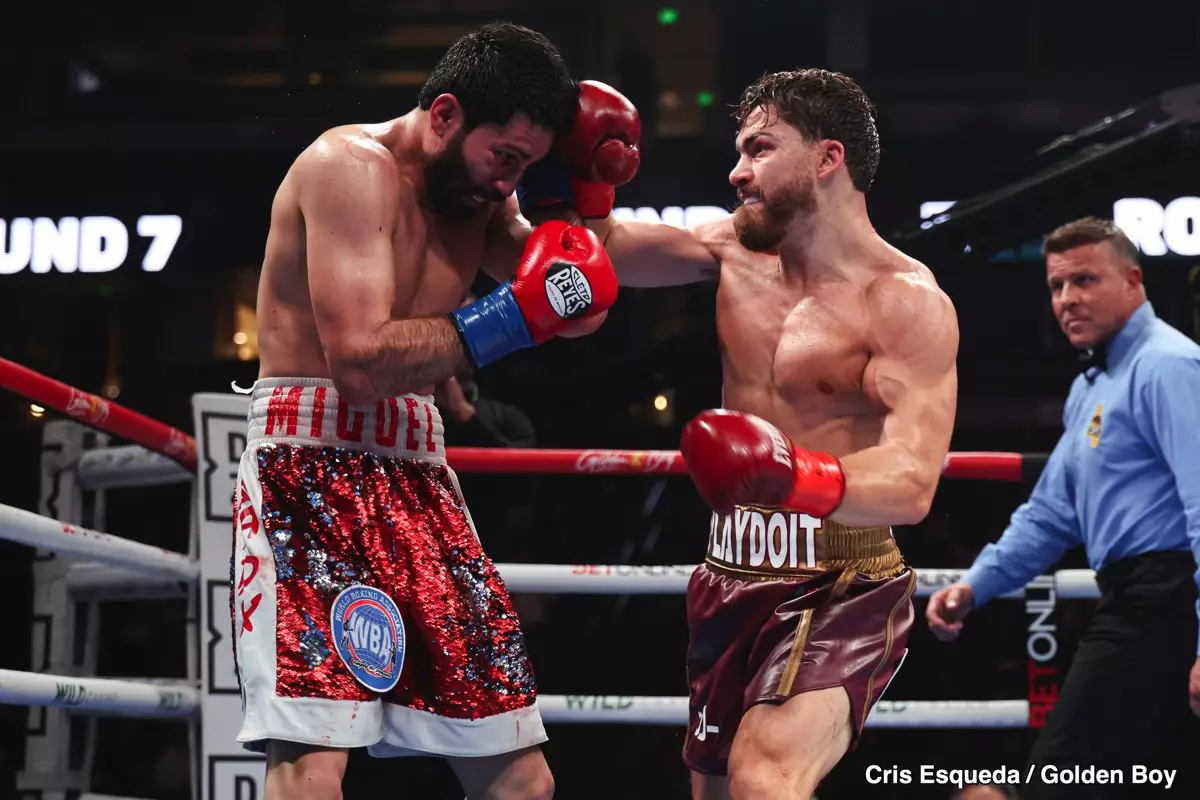On a night filled with anticipation at the Honda Center in Anaheim, California, light welterweight contender Oscar Duarte (29-2-1, 23 KOs) achieved a stellar seventh-round knockout victory over substitute opponent Miguel Madueno (31-4, 28 KOs). Promoter Oscar De La Hoya couldn’t contain his enthusiasm after witnessing Duarte’s impressive performance, which not only underscored the fighter’s skills but also highlighted the intricacies of the boxing world. The bout unfolded with tension, as both fighters entered the ring with a desire to prove their mettle, but it was Duarte’s raw power and strategic execution that ultimately ruled the night.
From the outset, Duarte exhibited composure and determination, setting the stage for a thrilling contest. The decisive moment came in the seventh round when Duarte connected a punishing right hand that reverberated through the arena, momentarily staggering Madueno. This pivotal blow followed by a relentless flurry of punches forced referee Thomas Taylor to halt the contest. De La Hoya, reflecting on the match, drew a sharp comparison between Duarte and rising star Keyshawn Davis, who had previously struggled to finish Madueno. This commentary speaks volumes, as it highlights the phenomenon of how fighters can approach similar opponents with vastly different strategies and outcomes.
In his previous encounter with Madueno, Keyshawn Davis, who recently captured the WBO lightweight title, struggled to secure a KO despite an extended ten-round bout, ultimately winning by unanimous decision. De La Hoya’s perspective illuminates an essential quality in boxing—risk-taking. Duarte’s willingness to engage vigorously positioned him as a more audacious contender compared to Davis, who opted for caution in the face of Madueno’s known punching power. The ability to stand toe-to-toe and absorb strikes while delivering devastating counterpunches illustrates a level of bravery among fighters that is often the difference between victory and defeat.
Additionally, the context surrounding Madueno’s preparation must be examined. Stepping in on just one week’s notice to replace injured Regis Prograis, Madueno entered the ring under less-than-ideal conditions. In contrast, the “full camp” advantage that he had against Davis was noticeably absent during this bout against Duarte. This lack of preparation undoubtedly affected his performance, leading to noticeable cuts and vulnerabilities exploited by Duarte throughout the fight.
Following the exhilarating victory, Oscar Duarte expressed his eagerness to face Arnold Barboza Jr., who recently captured the WBO interim light welterweight title. This call-out is not only indicative of Duarte’s ambition but also emphasizes the interconnectedness of elite fighters within the division.
Oscar Duarte’s victory over Miguel Madueno was a culmination of strategy, courage, and advantageous circumstances. As the boxing landscape continues to evolve, matchups such as Duarte’s forthcoming bout against Barboza Jr. represent exciting developments worth watching in the light welterweight division.

